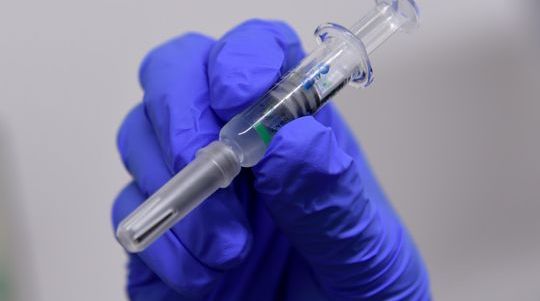Few questions around Covid-19 vaccines are still on the minds of some residents, even as UAE’s vaccination drive progresses towards new goals. The top 10 questions are answered by top officials who are in the public domain, as well as doctors in the private sector. Doctors include Dr Adel Mohammad Yasin Al Sisi, Chief Medical Officer of Prime Health Care Group, Dr Atul Aundhekar, CEO of Avivo Health Care Group, Dr Abdul Karim Nasser, Specialist Pulmonoligst at Burjeel Specialty Hospital, Sharjah and Dr Mustafa Saif, Sepcialist Internal Medicine , Aster Hospital, Mankhool.
1. Is it advisable to mix and match different vaccine doses?
Dr Farida Al Hossani, official spokesperson of the UAE Health Sector and Director of Communicable Diseases, Abu Dhabi Public Health Centre, said it is not advisable to mix and match doses of different vaccines. This is due to insufficient data or research availability on this. Dubai Health Authority (DHA) also tweeted on their official Twitter handle @DHA on May 8, in which it has advised against taking a mixed dose of vaccines.
2. What are different Covid-19 vaccine categories available in UAE?
In UAE there are two kinds of vaccines available - the inactivated virus-based vaccine where virus is destroyed by chemicals, heat or radiation. It is then introduced in the body to trigger an antibody reaction. This technology is also used to manufacture influenza and polio vaccines. The other - Messsenger Ribo Nucleic Acid (mRNA) vaccine is a new technology. A part of viral RNA is introduced in the human body to teach the immune system to make ‘spike protein’ and protect against future infections.
3. How do booster doses work as the UAE has announced that for people who have taken second dose of Covid-19 vaccine?
Booster doses increase immunity by re-exposing antigen to the immune memory cells that have over a period of time lost their function. Over a period of time post-vaccination number of anti-bodies and their immunological reaction is decreased. COVID-19 vaccine works by activating two parts of white blood cells, first plasma B cells, which make antibodies that last a few weeks and another type - T cells that can identify and kill the pathogen. A booster dose can effectively activate immunity for a longer time. Also, some people might not respond as well after two doses of vaccine compared to others. The booster dose will help by not only doubling the antibodies, but also exponentially increasing antibody production.
4. After taking two doses of inactivated Covid-19 vaccine, can a person take MRNA vaccine after a gap?
This is currently under study. Studies published in the Lancet Journal on ‘cocktail vaccines’ indicate that mixing and matching COVID-19 vaccine doses may increase reactogenicity. This refers to the property of a vaccine being able to produce common and ‘expected’ adverse reactions, such as fever and sore arm at injection site. This however is under trial and sticking to recommended regime for now.
5. If a person had COVID-19 after second dose, does that mean he had no immunity and has to repeat two doses instead of taking a booster?
It indicates that the person didn’t have strong antibody production to counter the virus or the exposure to the virus had occurred before immunity had kicked in. It is hence advised that the individual repeats both the vaccine doses instead of only a booster. However, the attending doctor may decide on basis of case.
6. Can antibody test help to minimize the need for a booster – should people with antibodies for COVID-19 get a third vaccine?
The health authorities are advising people not to go for antibody tests. Dr Hossani has advised to get booster dose eight months after second dose administration. It is free of charge like the first two vaccine doses.
7. In the case of influenza, people are required to take the jab annually – will take the booster of the same formulation protect against variants?
With current booster dose, there will definitely be an exponential increase in antibody activity. However, a new variant will require tweaking vaccine next year. So upgraded vaccine version would be needed. An inactivated virus vaccine includes exact viral amino acid sequence to trigger antibody production. A changed virus will require evolved vaccine.
8. Like seasonal flu vaccine, will Covid-19 vaccine also be required annually?
Currently, there is limited data on this. Influenza belongs to coronavirus family. So going by annual vaccine requirement for influenza, tweaked vaccines would be effective against new variants and mutants.
9. If adolescents are not affected, why are they being administered the COVID-19 vaccine?
So far COVID-19 has been seen to have a milder impact in teenagers and infants. Thousands of students in 12-16 year age group have been able to get vaccinated under the vaccination campaign by the Ministry of Health and Prevention. With the majority of UAE schools planning to resume physical classes from next academic session, they are stressing on getting all their students get fully vaccinated by June-end this year.
10. Can children in 12-16 years age group have any side effects such as allergic reactions or can vaccines affect their fertility?
It is a myth that any vaccination can affect fertility. This is incorporating fear while there is no data to suggest any vaccine, including Covid-19 vaccine can impact fertility. Allergies are not dependent on age, as any age group individual can have similar allergic reactions to vaccine, including toddler, young adult or an aged person. The most common side-effects are fever and feeling tired or achy, and last up to 24 hours. Certain allergic reactions can rarely occur if there is an allergy to any vaccine component.
 AR
AR UR
UR
